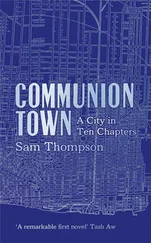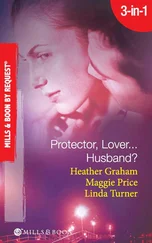Frank Tallis - Deadly Communion
Здесь есть возможность читать онлайн «Frank Tallis - Deadly Communion» весь текст электронной книги совершенно бесплатно (целиком полную версию без сокращений). В некоторых случаях можно слушать аудио, скачать через торрент в формате fb2 и присутствует краткое содержание. Жанр: Исторический детектив, на английском языке. Описание произведения, (предисловие) а так же отзывы посетителей доступны на портале библиотеки ЛибКат.
- Название:Deadly Communion
- Автор:
- Жанр:
- Год:неизвестен
- ISBN:нет данных
- Рейтинг книги:3 / 5. Голосов: 1
-
Избранное:Добавить в избранное
- Отзывы:
-
Ваша оценка:
- 60
- 1
- 2
- 3
- 4
- 5
Deadly Communion: краткое содержание, описание и аннотация
Предлагаем к чтению аннотацию, описание, краткое содержание или предисловие (зависит от того, что написал сам автор книги «Deadly Communion»). Если вы не нашли необходимую информацию о книге — напишите в комментариях, мы постараемся отыскать её.
Deadly Communion — читать онлайн бесплатно полную книгу (весь текст) целиком
Ниже представлен текст книги, разбитый по страницам. Система сохранения места последней прочитанной страницы, позволяет с удобством читать онлайн бесплатно книгу «Deadly Communion», без необходимости каждый раз заново искать на чём Вы остановились. Поставьте закладку, и сможете в любой момент перейти на страницу, на которой закончили чтение.
Интервал:
Закладка:
‘This isn’t very much, inspector.’
‘When did you last see Adele?’
‘Friday night.’
‘Where?’
‘We bumped into each other on Lange Gasse.’
‘Had she been to see — or was she going to see — Rainmayr?’
‘She was going to see someone else. A gentleman friend.’
‘Where?’
‘A private dining room.’
‘Which one?’
‘I don’t know.’
‘Did she mention the name of this gentleman friend — or say anything about him?’
‘No. She just said she was meeting him and that he’d promised to give her a gift.’
‘What kind of gift?’
Pryska Sykora shrugged.
Rheinhardt picked up his pen and made some notes.
‘I know other things … about Adele.’
The girl rattled the coins in her clenched fist.
‘Where do you live, Fraulein Sykora?’
‘Above Kirchmann’s Coffee House.’
‘With your family?’
‘No.’
‘May I ask … how do you pay for your lodgings?’
‘I don’t. Herr Kirchmann said I could stay in the attic room if I …’ she paused and diverted her gaze before adding ‘… helped out in the kitchen.’
Rheinhardt doubted that the arrangement between landlord and lodger consisted of such an uncomplicated exchange of alms for labour.
‘Tell me,’ said Rheinhardt. ‘How long had you been acquainted with Adele Zeiler?’
‘About a year.’
‘And how did you get to know her?’
‘She used to come into Kirchmann’s with some of the other Rainmayr girls. When it wasn’t busy I’d join them.’ Fraulein Sykora put the coins in her dress pocket and said: ‘I really thought I’d get more than this.’
Rheinhardt scrutinised his guest.
‘How old were you when Herr Kirchmann first offered you somewhere to live?’
Fraulein Sykora frowned.
‘Look, I came here to tell you about Adele and Rainmayr.’
‘If you’ve been living at Kirchmann’s for at least a year you must have been rather young when you moved in.’
‘Not that young.’
‘How old are you?’
‘Twenty.’
Rheinhardt smiled.
‘Well, Fraulein,’ said Rheinhardt, ‘you must be a favourite of the gods of youthfulness. Twenty, indeed. Where do your family live?’
‘I came here to talk about Adele and Rainmayr!’ Pryska Sykora shouted, stamping her foot on the floor. ‘Not about me! But if you’re not interested …’ She got up abruptly and turned to leave.
‘Fraulein Sykora?’
Rheinhardt placed another coin on the desk. Pryska Sykora snatched it up and went to get her coat from the stand. Then she opened the door and barked at Haussmann: ‘Take me down, I’m leaving.’
Haussmann craned his head around the door jamb and sought permission from his superior.
‘Yes,’ said Rheinhardt. ‘The interview is over.’ Then he called out, ‘Good afternoon, Fraulein Sykora. You have been most helpful.’
12
Miss Amelia Lydgate had come to recognise that her knowledge of music was deficient. In most cities this would not have mattered; however, in Vienna the inability to engage in intelligent conversation about music was a significant social handicap. She was determined to rectify this deficiency and had asked Liebermann to recommend some concerts. He responded by offering to take her to a piano recital at the Bosendorfer Saal. On going to the venue to buy tickets he discovered a programme that seemed peculiarly apposite, given Amelia’s temperament and nationality. It consisted largely of the English Suites by Johann Sebastian Bach. Liebermann was sure that Bach’s ‘logic’ would appeal to the cerebral Englishwoman and hoped that the nominal reference to her homeland would create an illusion of comforting familiarity (an illusion, because there was nothing particularly English about these suites at all — other than the fact that they were supposed to have been commissioned by an English nobleman).
Liebermann and Amelia Lydgate had already heard the first and second suites, and were now listening to an energetic account of the third in G minor. The prelude and preliminary dances were vigorous and exciting; however, the mood established by the fourth movement — a saraband — was quite different: sad, reflective, and searching. The melody was ornamented and resembled a vocal improvisation over a strummed accompaniment. Occasionally, a chord change would affect Liebermann deeply. It felt like something inside him was being unlocked or undone. Bach — for all his ruthless proficiency — still had the power to move the young doctor. And yet, the music was never mawkish or sentimental. The venerable composer had dispensed with manipulative cliches, replacing them with something far more potent: ravishing ingenuity.
Liebermann stole a quick glance at his companion, curious to see if she had been affected by the music.
Pale skin, russet tresses, and eyes of an indeterminate blue-grey …
Her expression was typically intense and her brow was lined with concentration.
Amelia Lydgate confused him.
There had been moments when he had felt so close to declaring his love for her that he could barely resist the urge. And other times when her intellectualism and cool manner made him grateful that he had never succumbed to such impulses. Their relationship was complicated; Amelia Lydgate had once been Liebermann’s patient and if this sobering consideration wasn’t enough to make him question the propriety of making an amorous overture, he could always reflect on what he had discovered to be the cause of her hysterical paralysis: a repressed memory of a sexual assault. Liebermann had treated Amelia Lydgate and over time they had become friends. At first he had justified his continued presence in her life on medical grounds; then he persuaded himself that he was being altruistic, providing assistance and advice to a stranger who was alone in a foreign country; then he had recognised how her remarkable intellectual gifts and scientific skills (she was an expert on human blood and a talented microscopist) might be utilised by the security office. Rheinhardt had consulted her on several occasions. And so the justifications had accumulated, each one binding them closer together.
Earlier in the year Liebermann had stood on the Charles Bridge in Prague with his uncle Alexander and had confessed his attachment. Alexander had suggested that — apart from his mother — there were three women in every man’s life: his wife, his mistress, and an unattainable object of desire. Clearly — Uncle Alexander maintained — Amelia Lydgate was Liebermann’s unattainable object: a fantasy innamorata, best enjoyed not in the flesh but in the imagination — an ageless reminder of the youthful propensity for infatuation and desire. Actual consummation would be a great disappointment.
Another exquisite change of harmony …
Liebermann studied Amelia’s hands, folded together on the green velvet of her skirt. His uncle might well be right, but he still wanted to reach out and cover her slim fingers with his own.
The subsequent dances of the G minor suite jolted Liebermann out of his reverie, and the final movement — a lively gigue — brought the concert to a close. Insistent applause persuaded the pianist to give an encore — a delightful arrangement of ‘Sheep May Safely Graze’. At its conclusion the pianist signalled his fatigue by shutting the piano lid, and the house lights came up as he was leaving the stage.
‘Well,’ said Liebermann to his companion. ‘Did you enjoy it?’
‘Yes,’ said Amelia. ‘Very much.’
They collected their coats from the cloakroom and walked to Cafe Central where Liebermann suggested that they should stop for coffee and cake. At an earlier point in their acquaintance he would have considered such an invitation impertinent, but their friendship was sufficiently established to render such scruples redundant. They entered the coffee house and found a table in the Arkadenhof, a courtyard decorated with small trees and covered by a glass roof. A curved balcony hung out over three arches and the seating area was enclosed between high fenestrated walls. Spherical gas lights seemed to hover in the shadows; however, closer inspection revealed the secret of their suspension — wrought-iron stands, painted black. A waiter emerged from the arches and escorted the couple to a circular table discreetly positioned behind a miniature orange tree. Liebermann ordered a schwarzer for himself and an Earl Grey tea for Amelia.
Читать дальшеИнтервал:
Закладка:
Похожие книги на «Deadly Communion»
Представляем Вашему вниманию похожие книги на «Deadly Communion» списком для выбора. Мы отобрали схожую по названию и смыслу литературу в надежде предоставить читателям больше вариантов отыскать новые, интересные, ещё непрочитанные произведения.
Обсуждение, отзывы о книге «Deadly Communion» и просто собственные мнения читателей. Оставьте ваши комментарии, напишите, что Вы думаете о произведении, его смысле или главных героях. Укажите что конкретно понравилось, а что нет, и почему Вы так считаете.












